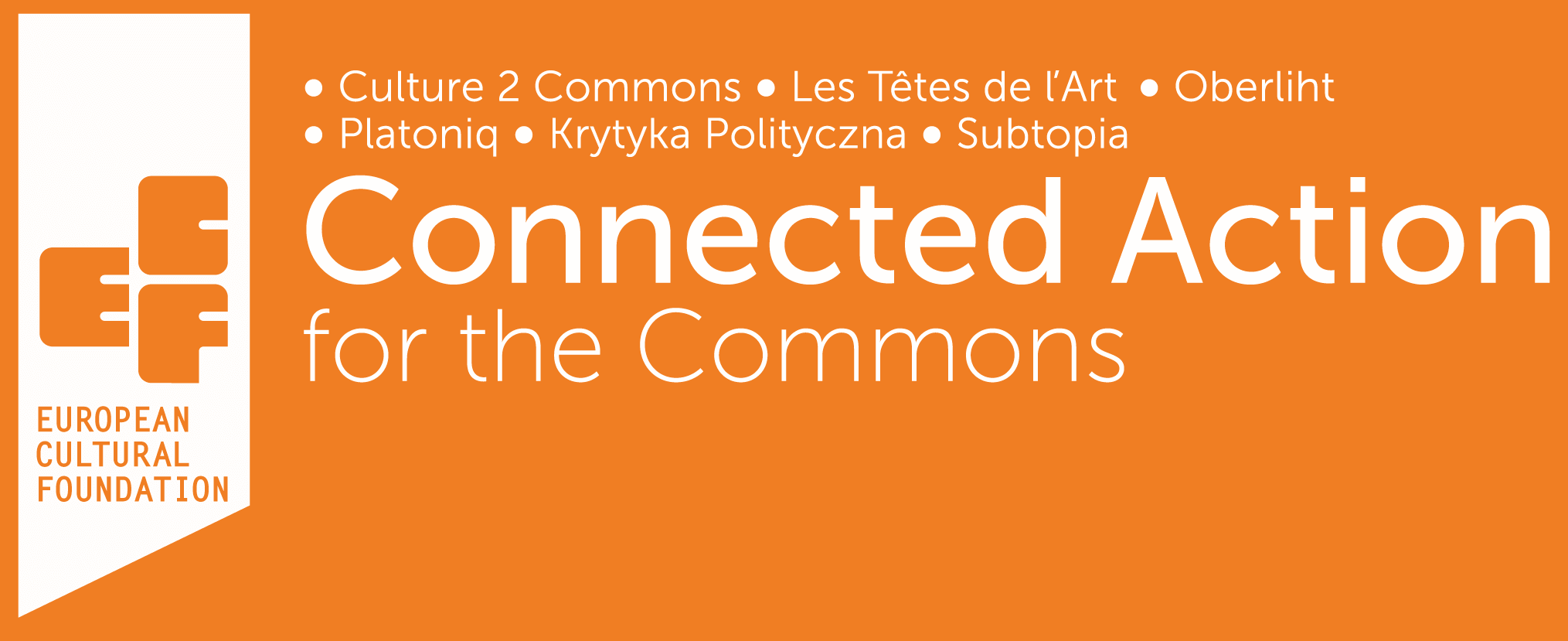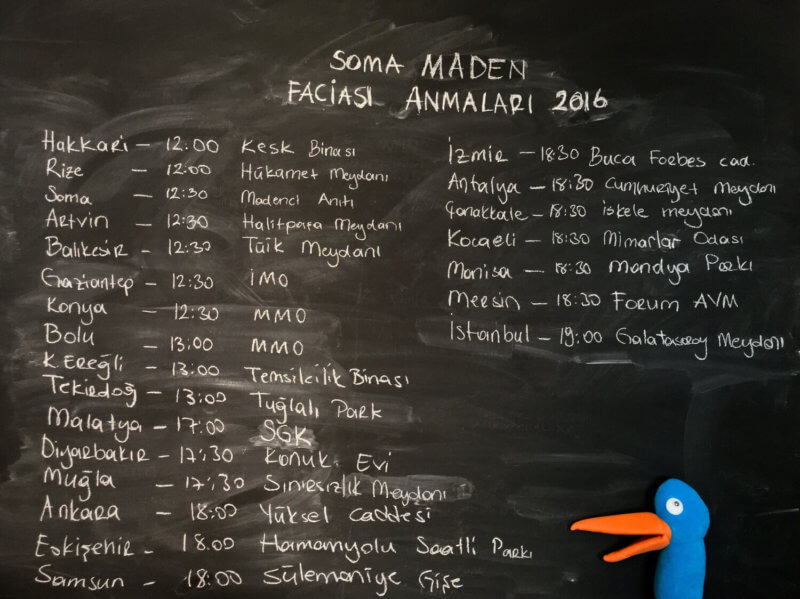Running up to the deadline for applications to participate in the 2017 Idea Camp some former participants share their stories. In this piece: Engin Önder who took part in 2014.
“By having an almost totally Middle Eastern news agenda and a vast use of technology at the same time, Turkey, to me, has been the most significant canvas possible for a new media experimentation. We call what we do “an experiment” at 140journos. Not coming from a journalistic background or having as an ideal a career in journalism, a bunch of college kids claimed the citizens’ right to know about what is going on in their countries, four and a half years ago with the first –but unfortunately late– realisation that media did not function the way it had promised to do so. 140journos has been using all available social media platforms like Twitter, Facebook, Medium, Whatsapp, Snapchat, Soundcloud etc. with the mission of creating coexistence –firstly through media– in the country of multiple ethnical, religious and intellectual minorities.
From 2012 until mid-2013, the team that consisted of volunteers attended court hearings, small or large scale protests in different cities: their priority get real-time basis, non-filtered, pure information to people. When UNC’s Zeynep Tufekçi listened to the story of 140journos, she was surprised and said that this couldn’t be a form of citizen journalism as we know it but a journalistic citizenship of some kind. That helped the 140journos team understand that the format was standing upside down. Rather than empowering and encouraging citizens to share their witnessing within a pool of information, the team got into the courtrooms and on to the streets themselves for newsmaking purposes. In mid-2013, Turkey got through the largest civil uprising of its recent history primarily against the neoliberal policies that the Turkish government had been applying on the environment and then turned into a resistance against the ruling party in general. The take of 140journos had to change overnight as tens of thousands of people, all of a sudden, became these citizen journalists that 140journos had been trying to build up when mainstream media preferred not to cover the protests happening across many Turkish cities.
Three years passed and the spirit of the protests, as some say, has disappeared in the Turkish political arena over time – so has the digital behaviour of the citizen journalists of the time. The tools that people use, the way that they use it have all evolved and transformed. The mechanic of the digital gatherings and the state’s ability to monitor and intervene have changed. A new interpretation of the citizen journalism scene in Turkey was needed. At the end of the day, social media for so many Turkish people has been a relatively free public space compared to the real one. 140journos created a curriculum out of experiences based on trial and error over the years and shaped it up for municipalities, NGO officials and volunteers so that local actors could be louder in the choir of mainstream news consumption of the country. Rather than leaving the evolution of citizen journalism outputs to distributed social media users, who had been losing concentration due to their political agenda and a loss of interest, we wanted to empower local actors, make them more conscious about how social media could be a mean for pulling more spotlight for what they had to say to the country.
According to the research company GfK’s recent evaluation, Turkey will be ranked in the top ten markets for smartphone ownership by the end of 2016. As a news organisation, we can create content but we can’t lay out an infrastructure and ask people to have compatible devices, only they can spare resource and purchase devices. Having said that, Turkish consumers have already passed the biggest test. They are willing to spend an important share of their monthly income for the instalment of their phone bill. Therefore, we wanted to use the potential and help people make the most out of their technological infrastructures with the responsibility of a news organisation. By supporting our idea, the European Cultural Foundation (ECF) granted a generous fund to 140journos as a part of our R&D proposal to visit different cities in Turkey for workshops to teach different uses of social media to civil society organisations, municipalities and other important actors in the creation of public opinion in a town in the rural part of Turkey. The 140journos team spent the last summer and autumn visiting different Turkish cities for the above-mentioned workshops. The project’s network of citizen journalists and volunteers visibly increased thanks to the communication created face-to-face.

ECF’s grant lasted a year and 140journos finalised the project with important experiences gathered from many visits in Turkey. As a result, the newsworthy content that the network of 140journos editors are able to pull has extended, communication with local authorities and other actors has been facilitated. Considering that as a good example, 140journos has recently started a new partnership with Twitter, where the 140journos project first started and originally named after the 140 character limit of Twitter referring to the “140” in the project’s name. Thanks to a generous support provided by Twitter, 140journos, in a different area, will be carrying out the series of workshops to teach other functions of social media that people can make use of to share issues they care about. Within the scope of the workshops called #, the purpose is to explain academies, NGOs, local municipalities how social media works, how media consumption can change and how specific problems of the towns visited can be recognised by public opinion at the national level. By the end of 2016, 140journos and Twitter aim to reach a thousand university students, who are potential Twitter users in the cities where Twitter use and 140journos contributor numbers are relatively lower. In other words, what ECF saw in the series of workshops were proven right and to-the-point and now it’s time for 140journos to take this format beyond and introduce learnings to new layers of society.Among some topics of the new 140journos curriculum in the # educational workshops are as follows: Turkey is a highly active country in terms of the use of social media platforms. Fun facts, statistics and potential reasons are why Turkish people spend a lot of time on these platforms. According to the latest elections, 500 out of 550 parliamentarians have an active Twitter account. From Twitter diplomacy and indigenous agendas to celebrities and Twitter phenomenons, what’s the picture of Turkey from the Twitter perspective? Is keeping up with the agenda of Turkey from Twitter possible? How did journalism transform into the overwhelming pace of social media platforms, especially into Twitter? 140journos’ inspiring story that began on Twitter. Twitter’s ability to create public opinion and raise awareness for social causes will be told. Special case studies by the 140journos archive will be shared and explained in detail. Twitter is a community that has a set of rules. How can users safely communicate on that medium?
As Turkey’s test with conventional media with a crooked eco-politics don’t seem to easily let its power fade, new media keep gaining importance as a transformative power in the society. Twitter, with its chronological algorithm rather than what Facebook has, gives more chance to be visible to unseen and unheard voices that remain underreported. 140journos, with its format proving good example thanks to ECF’s support, will exercise a new format by partnering Twitter and visit Turkey’s universities for raising more awareness on functional uses of social media and being a content producer in the first place but not a consumer only. And then only time will tell if all these efforts will be enough to make the digital society of Turkey more conscious or not.”

